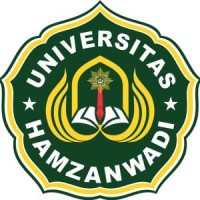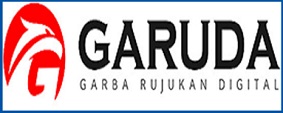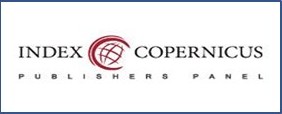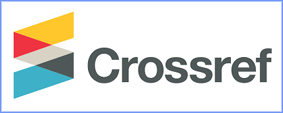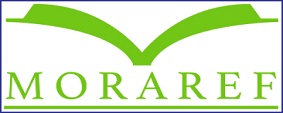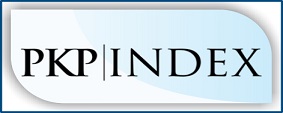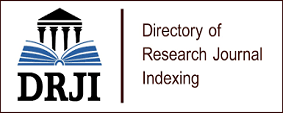Development of a Multicultural Curriculum to Enhance Student Tolerance in Senior High School
DOI:
https://doi.org/10.61277/ije.v2i3.147Keywords:
Multicultural Curriculum, Tolerance, Inclusive Education, Extracurricular Activities, Teacher TrainingAbstract
This study aims to explore how the development of a multicultural curriculum can enhance student tolerance at SMA Trenggalek. The main focus of the research is on the implementation of a multicultural curriculum that includes the integration of multicultural content into various subjects, extracurricular activities that support diversity, and specialized training for teachers. The research method employed is qualitative with a case study approach, involving school principals, teachers, students, and staff as research subjects. Data were collected through observations, in-depth interviews, and documentation. Data analysis was conducted thematically. The findings indicate that the implementation of a multicultural curriculum at SMA Trenggalek has a significant positive impact on students' attitudes towards tolerance. The integration of multicultural content in subjects such as Indonesian language and history helps students understand and appreciate cultural diversity and the nation's history. Extracurricular activities like cultural festivals and interfaith discussions serve as platforms for students to interact and learn firsthand about various cultures and beliefs. Additionally, intensive teacher training ensures that multicultural values are effectively applied in the teaching process. The impact of the multicultural curriculum is evident in the increased tolerance among students, the reduction of conflicts between students from different backgrounds, and the creation of a more inclusive learning environment. Students become more open to differences, reducing prejudice and stereotypes, and are more active in collaborating with peers from diverse backgrounds.
Downloads
References
Amin, M. (2019). Pendidikan Multikultural. PILAR, 9(1).
Amri, M., Saharuddin, S., & Ahmad, L. O. I. (2019). The Implementation of Islamic Education: The Process of Instilling Akhlakul Karimah (Noble Characters) for Madrasah Tsanawiyah Students. Tadris: Jurnal Keguruan Dan Ilmu Tarbiyah, 4(1), 117–125. https://doi.org/10.24042/tadris.v4i1.4070
Banks, J. A. (2015). Cultural Diversity and Education (0 ed.). Routledge. https://doi.org/10.4324/9781315622255
Bhopal, K. (2023). ‘We can talk the talk, but we’re not allowed to walk the walk’: The role of equality and diversity staff in higher education institutions in England. Higher Education, 85(2), 325–339. https://doi.org/10.1007/s10734-022-00835-7
Bowen, G. A. (2009). Document Analysis as a Qualitative Research Method. Qualitative Research Journal, 9(2), 27–40. https://doi.org/10.3316/QRJ0902027
Carver-Thomas, D. (2018). Diversifying the Teaching Profession: How to Recruit and Retain Teachers of Color. Learning Policy Institute. https://doi.org/10.54300/559.310
Creswell, J. W. (2009). Research design: Qualitative, quantitative, and mixed methods approaches (3rd ed). Sage Publications.
Fadlillah, M. (2017). Model kurikulum pendidikan multikultural di taman kanak-kanak. Jurnal Pembangunan Pendidikan: Fondasi dan Aplikasi, 5(1), 42. https://doi.org/10.21831/jppfa.v5i1.13286
Fauziah Nasution, Z. S. (2024). Pembelajaran dan Konstruktivis Sosial. Madani: Jurnal Ilmiah Multidisiplin, 1(12). https://doi.org/10.5281/ZENODO.10465606
Gay, G. (2018). Culturally Responsive Teaching: Theory, Research, and Practice. Teachers College Press.
Gazzotti, D., & Liberali, F. (2014). Conflict resolution in the context of Early Childhood Bilingual Education: Towards a multicultural development. Revista Brasileira de Linguística Aplicada, 14(2), 313–334. https://doi.org/10.1590/S1984-63982014005000012
Gliner, J. A., & Morgan, G. A. (2017). Research Methods in Applied Settings: An integrated approach to design and analysis.
Gollnick, D. M., & Chinn, P. C. (2013). Multicultural education in a pluralistic society. Pearson Higher Ed.
Haruna, Z., Ghanib, M. F. A., Muhith, A., & Sholeh, M. I. (2024). Malaysian Islamic Secondary School Leaders’: Leadership Challenges. 6(1).
Kuswaya Wihardit. (2010). Pendidikan Multikultural: Suatu Konsep, Pendekatan Dan Solusi. Jurnal Pendidikan, 11(2), 96–105. https://doi.org/10.33830/jp.v11i2.561.2010
Ladson-Billings, G. (2022). The dreamkeepers: Successful teachers of African American children. John wiley & sons.
Madhakomala, Aisyah, L., Rizqiqa, F. N. R., Putri, F. D., & Nulhaq, S. (2022). Kurikulum Merdeka dalam Perspektif Pemikiran Pendidikan Paulo Freire. At- Ta’lim : Jurnal Pendidikan, 8(2), 162–172. https://doi.org/10.55210/attalim.v8i2.819
Mertens, D. M. (2023). Research and evaluation in education and psychology: Integrating diversity with quantitative, qualitative, and mixed methods. Sage publications.
Miles, M. B., Huberman, A. M., & Saldaña, J. (2014). Qualitative Data Analysis: A Methods Sourcebook. Sage Publications.
Minarti, S., Ma’arif, M. J., Manshur, A., ‘Azah, N., Sholeh, M. I., & Sahri, S. (2024). The Influence Of Teacher Training And The Use Of Educational Technology On The Effectiveness Of Islamic Education Learning At Man 1 Bojonegoro. Educational Administration: Theory and Practice, 30(4), 64–75. https://doi.org/10.53555/kuey.v30i4.1404
Ngongo, V. L., & Hidayat, T. (2019). Pendidikan Di Era Digital. In Prosiding Seminar Nasional Program Pascasarjana Universitas PGRI Palembang.
Nur Efendi & Muh Ibnu Sholeh. (2023). Manajemen Pendidikan Dalam Meningkatkan Mutu Pembelajaran. Academicus: Journal of Teaching and Learning, 2(2), 68–85. https://doi.org/10.59373/academicus.v2i2.25
Patton, M. Q. (2002). Qualitative Research & Evaluation Methods. Sage Publications.
Ramdhan, T. W. (2019). Model Pengembangan Kurikulum Multikultural. Al-Insyiroh: Jurnal Studi Keislaman, 5(2), 39–53. https://doi.org/10.35309/alinsyiroh.v5i2.3516
Raţă, G. (2013). Multicultural education: From Theory to Practice. Cambridge Scholars Publishing.
Rifa’i, I. (2015). Tantangan Pendidikan Multikultural Dalam Era Globalisasi Di Indonesia. Islamica, 3(1).
Senior, R. M., Bartholomew, P., Soor, A., Shepperd, D., Bartholomew, N., & Senior, C. (2018). “The Rules of Engagement”: Student Engagement and Motivation to Improve the Quality of Undergraduate Learning. Frontiers in Education, 3, 32. https://doi.org/10.3389/feduc.2018.00032
Sholeh, M. I. (2023). Evaluation and Monitoring of Islamic Education Learning Management in Efforts to Improve Education Quality. Communautaire: Journal of Community Service, 2(2), 108–117. https://doi.org/10.61987/communautaire.v2i2.159
Sholeh, M. I. (2023). Strategi Manajemen Organisasi Pendidikan Islam dalam Menghadapi Tantangan Global. Edu Journal Innovation in Learning and Education, 1(1), 1–27. https://doi.org/10.55352/edu.v1i1.456
Sholeh, M. I., & Syafi’i, A. (2024). The Influence of Price Strategy in the Marketing Mix on Costumer Purchasing Decisions at Indocellular Tulungagung. 5(1).
Shull, F., Singer, J., & Sjøberg, D. I. K. (Eds.). (2008). Qualitative Methods in Empirical Studies of Software Engineering. Springer.
Sipuan, S., Warsah, I., Amin, A., & Adisel, A. (2022). Pendekatan Pendidikan Multikultural. Aksara: Jurnal Ilmu Pendidikan Nonformal, 8(2), 815. https://doi.org/10.37905/aksara.8.2.815-830.2022
Sleeter, C. (2018). A framework to improve teaching in multicultural contexts. Education & Self Development, 13(1), 43–54. https://doi.org/10.26907/esd13.1.05
Sopiansyah, D., & Erihardiana, M. (2021). Model Pembelajaran dan Implementasi Pendidikan Multikultural Dalam Pendidikan Islam dan Nasional. Mimbar Kampus: Jurnal Pendidikan dan Agama Islam, 20(2), 88–98. https://doi.org/10.47467/mk.v20i2.467
Supriatin, A., & Nasution, A. R. (2017). Implementasi Pendidikan Multikultural Dalam Praktik Pendidikan Di Indonesia. Elementary: Jurnal Ilmiah Pendidikan Dasar, 3(1), 1. https://doi.org/10.32332/elementary.v3i1.785
Syahbudin, Z., & Hanafi, M. (2018). The Model of Learning Design based on Islamic Multicultural Education to Prevent Conflicts of Behavior. Jurnal Pendidikan Islam, 3(2), 155. https://doi.org/10.15575/jpi.v3i2.1279
Trouki, E. (2012). The Challenge of Cultural Diversity in Greece: Reflections on ‘Intercultural Education Schools” (IES) Strategy for Creating Inclusive Learning Environments. Power and Education, 4(2), 219–229. https://doi.org/10.2304/power.2012.4.2.219
Yin, R. K. (2009). Case study research: Design and methods (Vol. 5). SAGE Publications.






